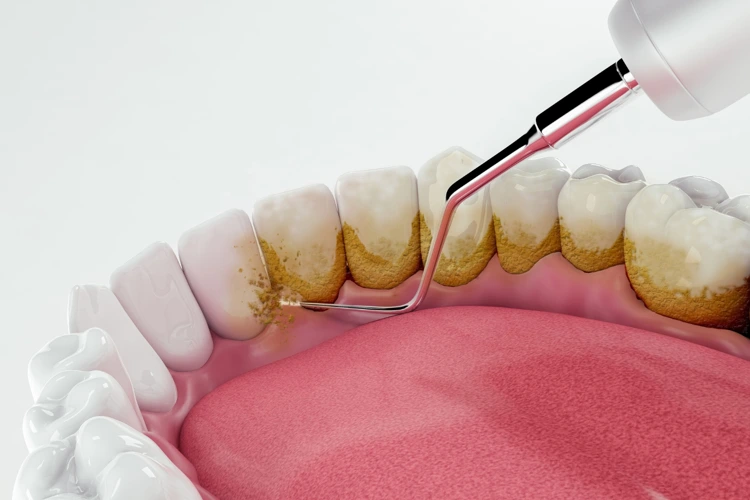
Oral health is about more than fresh breath and a bright smile. Your teeth and gums
are closely connected to the rest of your body, with poor oral hygiene linked to
chronic conditions including diabetes, cardiovascular disease, and
respiratory illnesses.
Known as the oral-systemic link, this connection is why dental care is now
recognised as a key part of overall health.



Understanding the Oral-Systemic Link
The oral-systemic link refers to the relationship between oral health and overall health. Our mouths are teeming with bacteria, most of which are harmless. However, when oral hygiene is not maintained, these bacteria can reach levels that lead to oral infections such as gum disease and tooth decay. These infections can subsequently impact other parts of the body and affect our overall health1.
Oral Hygiene and Diabetes
People with diabetes are more prone to gum disease, which can, in turn, make diabetes harder to control. Inflammation in the mouth can weaken the body's ability to control blood sugar, making insulin less effective. A vicious cycle ensues because high blood sugar provides ideal conditions for infection to grow, including gum infections. Fortunately, managing gum disease through good oral hygiene can help control blood sugar, contributing to better management of diabetes1.
Oral Hygiene and Heart Disease
Research shows that people with gum disease have a higher risk of developing heart disease and suffering a stroke. The bacteria in the mouth due to gum disease can get into the bloodstream, causing inflammation of the blood vessels, leading to heart disease. Regular brushing, flossing, and dental check-ups can help manage the bacteria and inflammation, reducing the risk2.
Oral Hygiene and Respiratory Diseases
Poor oral health has been linked to respiratory diseases such as pneumonia and chronic obstructive pulmonary disease (COPD). The theory behind this link is that bacteria from the mouth can be inhaled into the lungs, causing respiratory diseases. A healthy mouth, therefore, can potentially reduce the incidence of such conditions3.
Adopting Good Oral Hygiene Practices
Good oral hygiene involves regular brushing, ideally after each meal, and flossing at least once a day. In addition to this, regular dental scaling and polishing is crucial as a preventative measure and to detect any early signs of oral health problems. Dentists can remove plaque and tartar, and check for signs of gum disease and other oral health problems.
Prioritizing Oral Health for Overall Wellness
Taking care of your teeth and mouth is very important in managing long-term health
conditions. As more research shows the link between oral health and overall health,
it’s clear that keeping your mouth healthy isn’t just about avoiding cavities or gum
disease—it also helps your entire body stay healthy. Remember, your mouth is the
entry point to your body, so looking after it is a key step toward better health.
Keep in mind that while good oral hygiene is important, it’s only one part of
managing chronic health issues. Regular exercise, eating a healthy diet, not
smoking, and regular health
check-ups with your doctor are all essential too.
References
- Preshaw, P. M., Alba, A. L., Herrera, D., Jepsen, S., Konstantinidis, A., Makrilakis, K., & Taylor, R. (2012). Periodontitis and diabetes: a two-way relationship. Diabetologia, 55(1), 21-31 (https://doi.org/10.1007/s00125-011-2342-y)
- Humphrey, L. L., Fu, R., Buckley, D. I., Freeman, M., & Helfand, M. (2008). Periodontal disease and coronary heart disease incidence: a systematic review and meta-analysis. Journal of General Internal Medicine, 23(12), 2079-2086. (https://doi.org/10.1007/s11606-008-0787-6)
- Scannapieco, F. A., Bush, R. B., & Paju, S. (2003). Associations between periodontal disease and risk for nosocomial bacterial pneumonia and chronic obstructive pulmonary disease: A systematic review. Annals of Periodontology, 8(1), 54-69. (https://doi.org/10.1902/annals.2003.8.1.54)
About This Post and True Dental Studio
Information from this post was contributed by True Dental Studio and Dr Tay Chih Kien.

Dr Tay Chih Kien
B.D.S. (Singapore)Principal Dentist
Dr Tay Chih Kien is the Principal Dentist at True Dental Studio (Ang Mo Kio) with over 20 years of experience with special interests in Root Canal Treatment (Endodontics), Implant Dentistry and Invisalign. Dr Tay has seen patients from young children to the elderly, and has also been entrusted as the choice of a family dentist for many patients.
Get in Touch With True Dental Studio
| Address | 728 Ang Mo Kio Avenue 6, #01-4228, Singapore 560728 |
|---|---|
| Phone | 6456 1828 |
| hello@truedental.sg | |
| Website | https://www.truedentalstudio.com/ang-mo-kio-dental-clinic |
Disclaimer: The post contains information and content supplied by a guest contributor. This does not constitute or imply any endorsement or recommendation by ATA Medical Pte Ltd. It is your responsibility to verify and investigate the necessary services, products, and/or providers. ATA Medical Pte Ltd assumes no responsibility, direct or indirect from the use of the information from this post.

